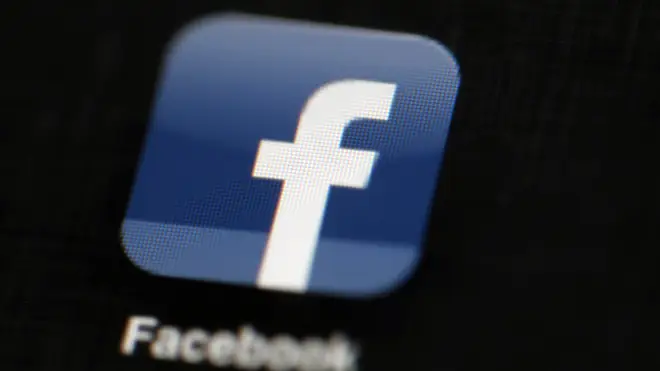
James O'Brien 10am - 1pm
10 June 2021, 17:34

The Russian government’s efforts to tighten control of the internet and social media date back to 2012.
Russian authorities have ordered Facebook and the messaging app Telegram to pay steep fines for failing to remove banned content.
The move could be part of growing government efforts to tighten control over social media platforms amid political dissent.
A Moscow court fined Facebook a total of 17 million rubles (£167,000) and Telegram 10 million rubles (£98,000)
It was the second time both companies have been fined in recent weeks.

On May 25, Facebook was ordered to pay 26 million rubles (£255,000) for not taking down content deemed unlawful by the Russian authorities.
A month ago, Telegram was also ordered to pay 5 million rubles (£49,000) for not taking down calls to protest.
Earlier this year, Russia’s state communications watchdog Roskomnadzor started slowing down Twitter and threatened it with a ban over its alleged failure to take down unlawful content.
Officials maintained the platform failed to remove content encouraging suicide among children and containing information about drugs and child pornography.
The crackdown unfolded after Russian authorities criticised social media platforms that have been used to bring tens of thousands of people into the streets across Russia this year to demand the release of jailed Russian opposition leader Alexei Navalny, President Vladimir Putin’s most well-known critic.
The wave of demonstrations has been a major challenge to the Kremlin.
Officials alleged that social media platforms failed to remove calls for children to join the protests. Mr Putin has urged police to act more to monitor social media platforms and to track down those who draw children into “illegal and unsanctioned street actions”.
The Russian government’s efforts to tighten control of the internet and social media date back to 2012, when a law allowing authorities to blacklist and block certain online content was adopted.
Since then, a growing number of restrictions targeting messaging apps, websites and social media platforms have been introduced in Russia.
The government has repeatedly aired threats to block Facebook and Twitter but stopped short of outright bans — probably fearing the move would elicit too much public outrage.
Only the social network LinkedIn has been banned by authorities for its failure to store user data in Russia.
In 2018, Roskomnadzor moved to block Telegram over its refusal to hand over encryption keys used to scramble messages, but failed to fully restrict access to the app, disrupting hundreds of websites in Russia instead.
Last year, the watchdog officially withdrew the demands to restrict the app, which continued to be widely used despite the ban, including by government institutions.